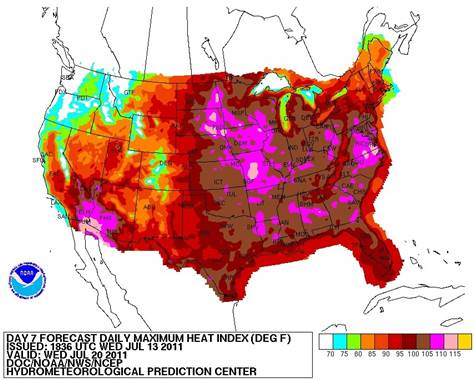Reuters - July 15, 2011

(Reuters) - A heat wave hovering in the central and southern states is expanding north to states not accustomed to intense and prolonged heat.
"This is going to be especially bad in the upper Midwest," said Chris Vaccaro, a spokesman for the National Weather Service.
Temperatures will be in the 90's and possibly hit 100 degrees in some places. When humidity is factored in, the heat index could reach 115 degrees.
These soaring mercury levels are unusual for states like North and South Dakota, Minnesota and Wisconsin, Vaccaro said, which makes this heat wave particularly dangerous in those places. In Minneapolis alone highs could reach 15 degrees above normal.
The heat was apparently to blame for the death of a 72-year-old man in South Memphis, Tennessee.
The man died Wednesday, according to the Shelby County Health Department.
The air conditioning in his home was malfunctioning and blowing hot air. And while a fan was in use, the windows were closed, the agency reported.
Recent Comments